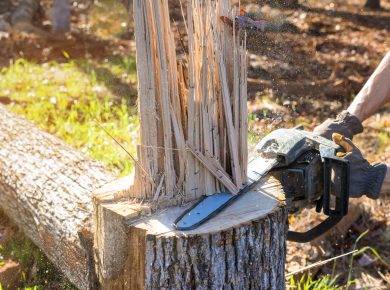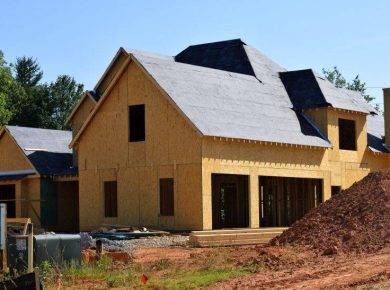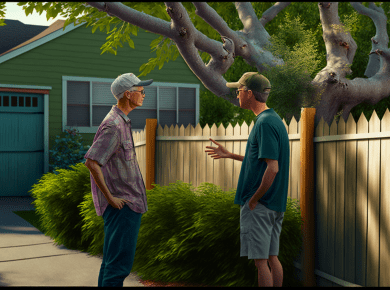Table of Contents
If you live in California and your neighbor has cut down one of your trees, you may be wondering what your options are. In this guide, we’ll explore the steps you can take if you’re dealing with this issue.
My neighbor cut my tree in California
n the state of California, if a neighbor cuts down a tree on your property without your permission, you may be entitled to compensation for damages. The amount of damages you can seek depends on the value of the tree and the extent of the damages caused.
If the tree was a rare or valuable species, or if it had sentimental value to you, you may be able to seek higher damages. Similarly, if the tree was providing significant economic value, such as by providing shade to a garden or producing fruit, you may be able to seek higher damages.
On the other hand, if the tree was not of significant value and did not cause significant damage, you may only be able to seek a relatively small amount of damage.
My tree branches overhang my property in California
If your neighbor’s tree has branches that overhang your property, you may be wondering if you have the right to trim them back.
In California, property owners are generally allowed to trim branches and roots that cross onto their property, as long as the trimming is done in a reasonable manner.
However, it’s always a good idea to try and communicate with your neighbor first and see if you can come to a resolution. If your neighbor is unwilling to work with you, you may need to seek legal action.
My neighbor damaged my tree on my property in California
If the tree damages your fence, or your neighbor’s property, or poses a threat to people or other property, you can ask that the court order your neighbor to trim the overhanging branches. If a branch breaks off and causes damage on its way down, California law means that it is no different than if your neighbor threw the branch at your car. You would be entitled to sue for compensation for property damage that California laws allow you to recover.
If your neighbor has damaged one of your trees on your property, you may be able to seek compensation for the damages.
In California, a property owner is responsible for any damages they cause to their neighbor’s property, whether intentional or accidental.
If your neighbor has damaged your tree, it’s important to document the damage with photos or videos. You may also want to consider hiring an arborist to assess the damage and provide an estimate for repairs. If the damage is severe and you have homeowners insurance, your policy may cover the costs of repairs.
My neighbor’s tree roots or branches damaged my property in California
If your neighbor’s tree roots or branches have damaged your property, you may be able to seek compensation for the damages. In California, a property owner is generally responsible for any damage their tree causes to their neighbor’s property.
If your neighbor’s tree is causing damage to your property, it’s important to document the damage with photos or videos. You may also want to consider hiring an arborist to assess the damage and provide an estimate for repairs.
If the damage is severe and you have homeowners insurance, your policy may cover the costs of repairs.
Can my neighbor make me cut my tree?
In California, a property owner is required to trim any tree that hangs over the neighbor’s property. A property owner who trims trees on his or her neighbor’s land without getting consent may have to pay for damages. If the neighbor does the work himself, he has to do it properly; otherwise, he can be liable for the resulting damage that might take place.
In most cases, California law gives property owners the right to decide whether or not a tree on their property should be trimmed or removed. As long as you are acting in good faith, this is considered a matter of personal preference and is therefore outside of a neighbor’s legal jurisdiction.
How can I get my neighbor to cut his dead tree in California?
If your neighbor has a dead tree on their property that you believe is a safety hazard, you may be wondering what you can do.
In California, property owners are generally responsible for maintaining their trees and ensuring they are safe. If you’re concerned about a dead tree on your neighbor’s property, it’s a good idea to try and communicate with them about the issue and see if you can come to a resolution.
If your neighbor is unwilling to address the issue, you may need to seek legal action.
What happens if I cut my neighbor’s tree down in California?
If you cut down your neighbor’s tree without their permission, you may be liable for damages. In California, a property owner is generally responsible for any damages they cause to their neighbor’s property, whether intentional or accidental.
If you cut down your neighbor’s tree without their permission, you may be sued for the value of the tree and any damages caused. It’s always a good idea to communicate with your neighbor before taking any action and try to come to a resolution.
If a tree is cut down on my property by a neighbor how much money should I receive in damages?
It is important to note that determining the value of a tree and the damages caused by its removal can be complex and may require the expertise of an arborist or other expert witness. An experienced lawyer can help you assess the value of your tree and the damages caused by its removal, and can help you seek appropriate compensation from your neighbor.
If you are in the state of California and need assistance with a tree dispute with your neighbor, we can connect you with an experienced lawyer in your area who can help you navigate the legal process and fight for the compensation you deserve.
If you’re dealing with an issue with your neighbor’s tree in California, it’s important to understand your rights and options. If you’re unable to come to a resolution with your neighbor and need legal guidance, we recommend reaching out to an experienced lawyer in your area.



